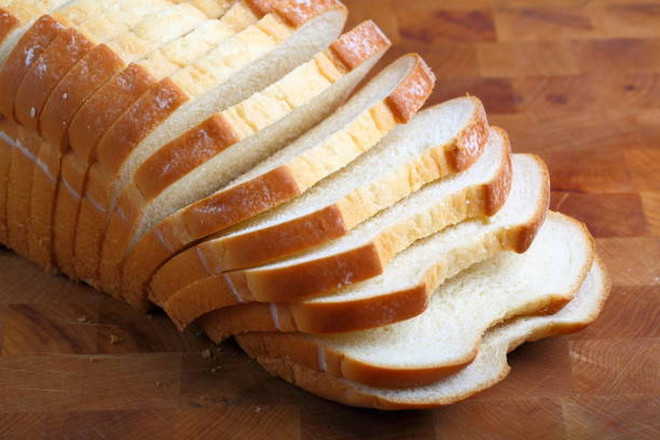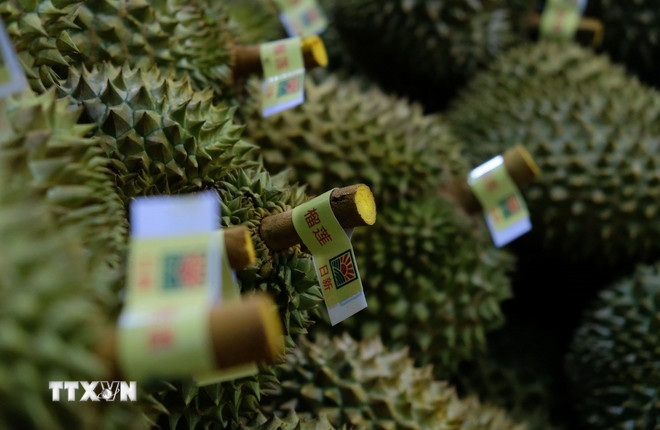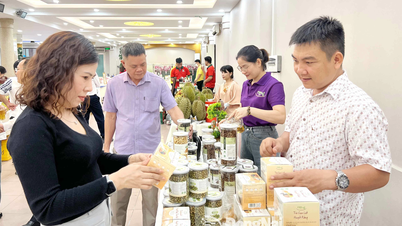Patients at risk of diabetes or with diabetes have a common concern: what should and should not eat when having high blood sugar? Diet is an extremely important factor in controlling blood sugar and preventing complications caused by diabetes.
Foods with a high glycemic index often contain carbohydrates that are easily digested and absorbed, causing a sudden spike in blood sugar. Consuming foods with a high glycemic index can disrupt blood sugar levels and pose health risks, especially for people with diabetes.
Blood sugar and how it is metabolized in the body
The body absorbs sugar from foods containing sugar and converts it into Glucose through many different chemical reaction cycles. Insulin secreted by the pancreas acts as an enzyme to help break down sugar and then transport it into the blood. This amount of sugar will be converted into energy by the organs to sustain the activities in the body.
Blood sugar levels are not fixed, but based on the body's daily needs, the amount of sugar will increase and decrease to meet. However, if sugar becomes excessive, it will not be beneficial to health because the body cannot consume it all. Too high blood sugar can lead to many serious diseases, the most common of which is diabetes.
Therefore, to proactively control symptoms caused by high blood sugar, patients need to pay attention to their daily diet and activities.
Here are foods that increase blood sugar:
White cereals

White grains such as white bread, white noodles, white rice... are considered processed carbohydrates, removing much of the fiber. Therefore, they are digested quickly, converted into sugar and absorbed into the blood quickly.
Diabetics should prioritize whole grains such as whole grain bread (black bread), whole wheat pasta or brown rice, oats... These grains are rich in fiber to help regulate blood sugar levels. However, diabetics can still add a small amount of white grains to their diet by combining them with lean meat, good fats and some non-starchy vegetables.
Sugary drinks group
According to Rush University Medical Center (USA), sugary drinks can cause blood sugar to increase rapidly and be difficult to control. Moreover, these drinks (soda, coffee, canned fruit juice, carbonated soft drinks...) often do not contain protein, fat or fiber. Therefore, to replace sugary drinks, patients should choose to drink water or add some fruit slices to their drinks.
In the case of low blood sugar, drinking a small amount of this beverage can quickly increase blood sugar, reducing symptoms and possible risks. However, the patient should drink slowly, starting with 1/2 cup and monitoring how blood sugar levels change before continuing to drink more.
Fast food
Fast food, such as burgers, french fries, fried chicken, etc., not only contains a lot of calories and fat but also a lot of sugar and refined carbohydrates. Consuming this food leads to a rapid increase in blood sugar. Patients should limit fast food intake, even consume it at a minimum, and combine it with fiber from vegetables and salads to regulate blood sugar levels.
Fruits contain a lot of sugar

Fruits can cause a sudden spike in blood sugar if eaten in large quantities, as they have a high glycemic index (GI) and glycemic load (GL). However, people with diabetes should not completely eliminate fruits from their diet, as they provide many vitamins, minerals, antioxidants, and fiber.
To eat fruit in a healthy way for diabetics, eat small portions, choose fresh whole fruit and do not add any sugar. Dried fruit without sugar can still cause a spike in blood sugar because the water has been removed, leaving only the concentrated sugar of the fruit.
Starchy vegetables
Vegetables such as potatoes, peas, corn, etc. contain starch and are high in carbohydrates. Consuming large amounts of these vegetables can cause blood sugar to fluctuate. However, you can eat them in small amounts, combined with foods with a low glycemic load such as lean protein (chicken, fish) and healthy fats.
Milk
Although considered a carbohydrate with a low glycemic index (GI), milk can still increase blood sugar in diabetics if consumed in large amounts. Therefore, patients can replace cow's milk with plant milk, such as unsweetened soy milk, because they have low sugar and high protein, so they are less likely to increase blood sugar./.
Source: https://www.vietnamplus.vn/vi-sao-nguoi-benh-tieu-duong-khong-nen-an-nhung-loai-thuc-pham-nay-post1052223.vnp




























![[Photo] National Assembly Chairman attends the seminar "Building and operating an international financial center and recommendations for Vietnam"](https://vphoto.vietnam.vn/thumb/1200x675/vietnam/resource/IMAGE/2025/7/28/76393436936e457db31ec84433289f72)







































































Comment (0)